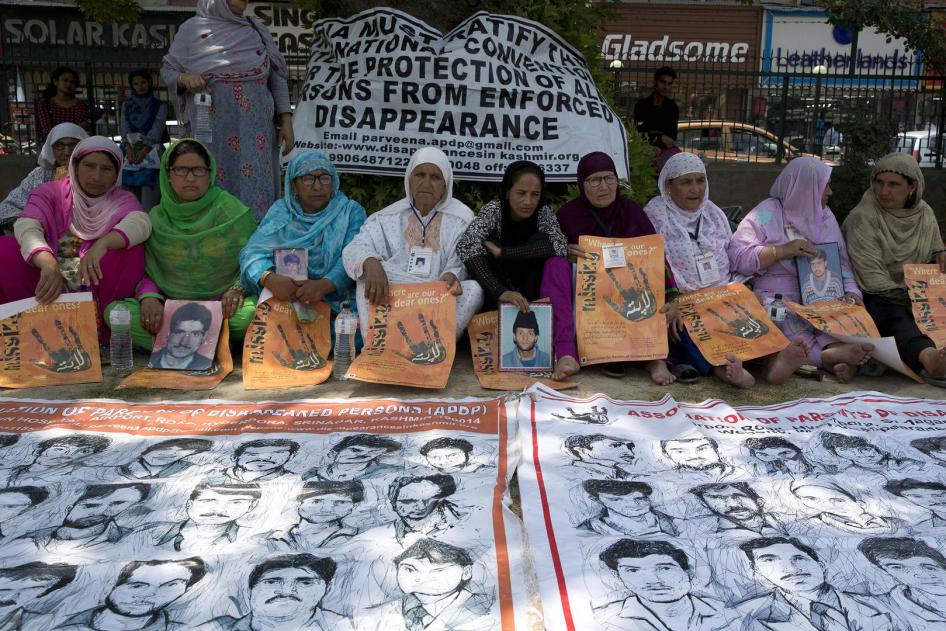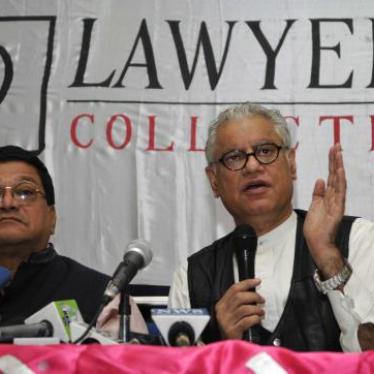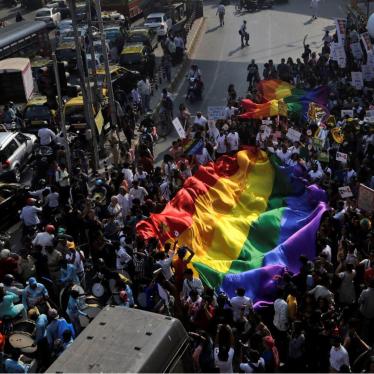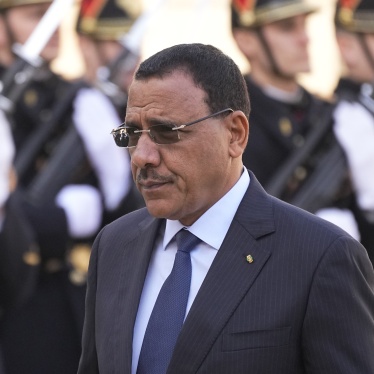(New York) – India and Pakistan should act on the recommendations of the United Nations human rights office to protect basic rights in the contested region of Kashmir, Human Rights Watch said today.
The 43-page report by the Office of the UN High Commissioner for Human Rights (OHCHR), released on July 8, 2019, raises serious concerns about abuses by state security forces and armed groups in both Indian and Pakistan-held parts of Kashmir. The Indian government dismissed the report as a “false and motivated narrative” that ignored “the core issue of cross-border terrorism.” Pakistan welcomed the report but requested that sections be removed or amended in which the information was “not specific to Pakistan-Administered Kashmir but were general human rights concerns affecting all of Pakistan.”
“India and Pakistan blame each other for human rights violations in Kashmir while ignoring their own responsibility for abuses,” said Meenakshi Ganguly, South Asia director. “Authorities in both countries should use the opportunity created by the UN report to change course and hold accountable those who’ve committed serious abuses.”
The OHCHR said both India and Pakistan had failed to take any clear steps to address and implement the recommendations made in its June 2018 report, the office’s first-ever on human rights in Kashmir. The latest report comes after a deadly attack in February by a Pakistan-based armed group, Jaish-e-Mohammad, that targeted a security forces convoy in Kashmir, killing 40 Indian soldiers. Military escalation between India and Pakistan ensued, including cross-border shelling at the Line of Control (LoC), the de-facto international border in disputed Kashmir.
The Srinagar-based Jammu and Kashmir Coalition of Civil Society reported that conflict-related casualties were the highest in 2018 since 2008, with 586 people killed, including 267 members of armed groups, 159 security forces personnel, and 160 civilians. The Indian government asserted that 238 militants, 86 security forces personnel, and 37 civilians were killed.
The OHCHR found that Indian security forces often used excessive force to respond to violent protests that began in July 2016, including continued use of pellet-firing shotguns as a crowd-control weapon even though they have caused a large number of civilian deaths and injuries. The Indian government should review its crowd control techniques and rules of engagement, and publicly order the security forces to abide by the UN Basic Principles on the Use of Force and Firearms by Law Enforcement Officials.
The report also decried the lack of justice for past abuses such as killing and forced displacement of Hindu Kashmiri Pandits, enforced or involuntary disappearances, and alleged sexual violence by Indian security forces personnel. It expressed concern over excessive use of force during cordon and search operations, resulting in civilian deaths as well as new allegations of torture and deaths in custody.
The OHCHR noted that India’s Armed Forces (Jammu and Kashmir) Special Powers Act (AFSPA) “remains a key obstacle to accountability,” because it provides effective immunity for serious human rights violations. Since the law came into force in Kashmir in 1990, the Indian government has not granted permission to prosecute any security force personnel in civilian courts.
The UN human rights office also said that India should amend its Public Safety Act, an administrative detention law that allows detention without charge or trial for up to two years. The law has often been used to detain protesters, political dissidents, and other activists on vague grounds for long periods, ignoring regular criminal justice safeguards.
In July 2018, the Indian state government of Jammu and Kashmir amended section 10 of the Public Safety Act, removing the prohibition on detaining permanent residents of Jammu and Kashmir outside the state. At least 40 people, mainly separatist political leaders, were transferred to prisons outside the state in 2018, the OHCHR said. It said that transferring detainees outside the state makes it harder for family members to visit and for legal counsel to meet with them. It also noted that prisons outside the state were considered hostile for Kashmiri Muslim detainees, especially separatist leaders.
The UN human rights office said that armed groups were responsible for human rights abuses including kidnappings, killings of civilians, sexual violence, recruitment of children for armed combat, and attacks on people affiliated or associated with political organizations in Jammu and Kashmir. It cited the Financial Action Task Force (FATF), an inter-governmental organization that monitors money laundering and terrorist financing, which has called on Pakistan to address its “strategic deficiencies.” India has long accused Pakistan of providing material support, arms, and training to the militant groups. Attacks in Kashmir have resulted in more than 50,000 deaths since 1989.
The OHCHR also found that human rights violations in Pakistan-held Kashmir included restrictions on the right to freedom of expression and association, institutional discrimination against minority groups, and misuse of anti-terrorism laws to target political opponents and activists. It noted threats against journalists for doing their work. The UN human rights office also expressed concern over enforced disappearances of people from Pakistan-held Kashmir, noting that victim groups alleged that Pakistani intelligence agencies were responsible for the disappearances.
“The Indian government’s rejection of the latest UN report on human rights in Kashmir shows that it’s unwilling to confront its own human rights failures,” Ganguly said. “Both India and Pakistan should accept the findings of the report and invite an independent investigation to help end serious abuses in Kashmir.”









